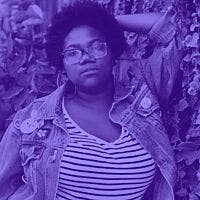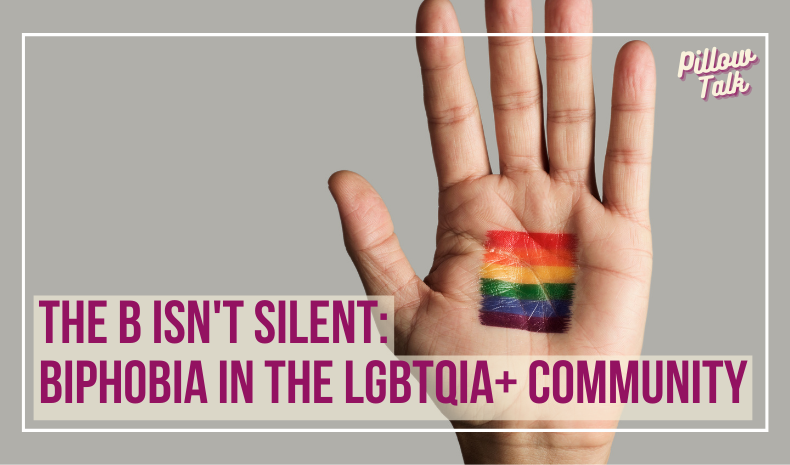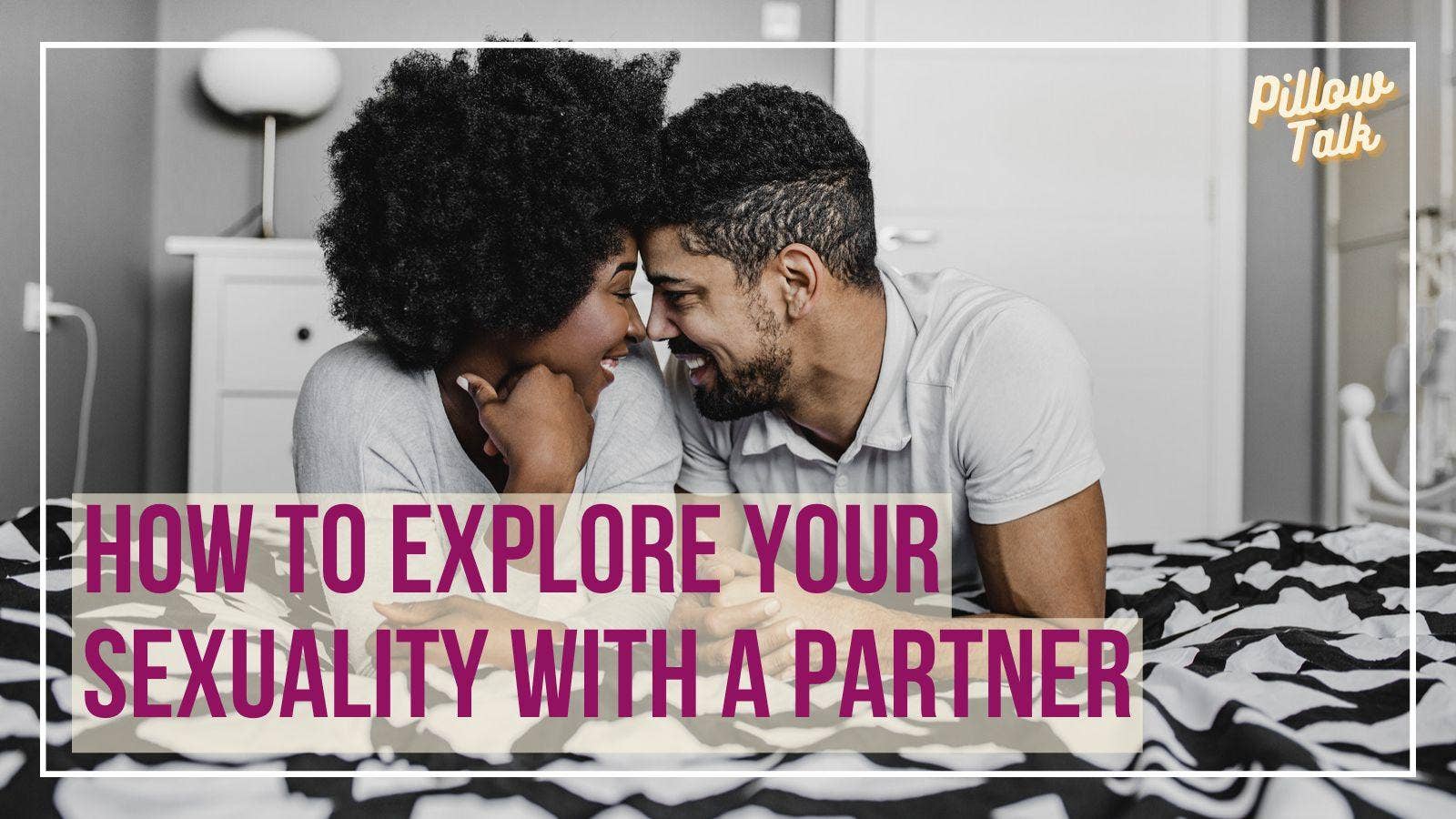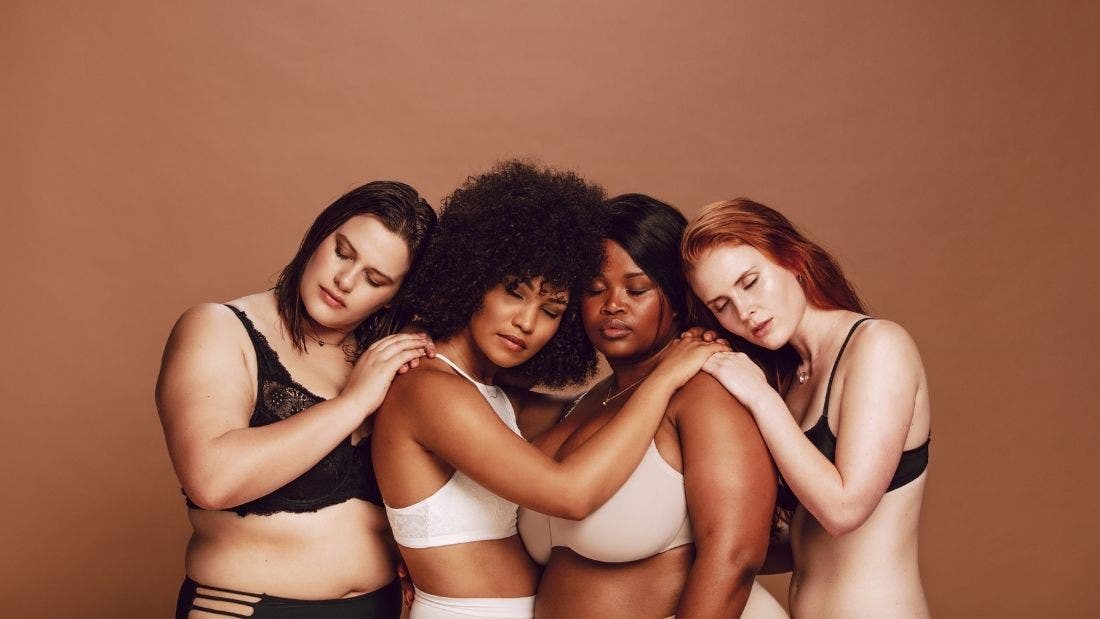The B Isn't Silent: Fighting Biphobia Within the LGBTQIA+ Community
Pride month is a celebration of ALL within the LGBTQIA+ community
It’s officially Pride Month, a celebration for everyone within the alphabet soup, that is, Lesbians, Gays, Transgender folks, Queer people, Intersex individuals, Asexuals, Pansexuals, Bisexuals, and everyone else. Though this month is meant for everyone, not everyone feels welcome or open to partake in the celebrations, one specific group within the LGBTQIA+ community, especially bisexuals. This feeling of unwelcomeness is primarily due to biphobia and bi-erasure within the LBGTQIA+ community.
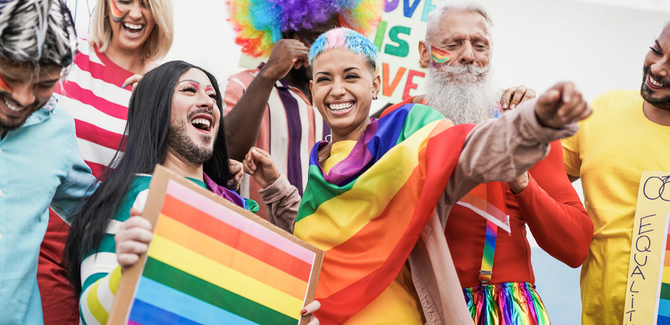
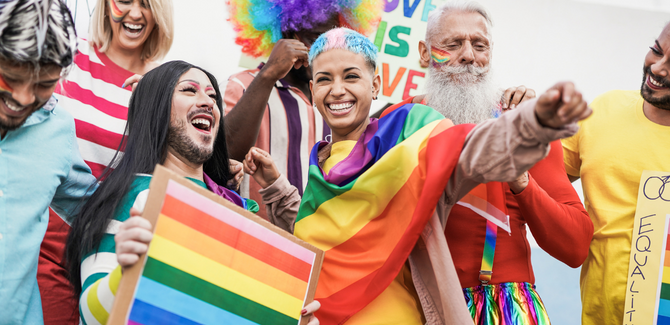
Biphobia is prejudice, fear, and hatred directed at bisexual people, as described by the Human Rights Campaign. Much biphobia stems from the notion or belief that monosexuality is superior or the only correct type of sexual attraction. Monosexuality is the attraction to only one sex, so heterosexuality or homosexuality (specifically gay or lesbian.)
Biphobia looks a lot of different ways. For example, it could be:
- Assuming that male presenting and female-presenting individuals are straight.
- Questioning bisexuals (and other polysexual individuals) if they have ever been with so and so gender to prove their queerness.
- Excluding bisexuals from queer spaces.
- Rejecting bisexual individuals for having been with a sex you don’t like (lesbians saying they could never be with a bisexual woman who had been with a man.)
- Saying that bisexuality is just a pit stop to being fully gay.
All of these are common occurrences of biphobia that bisexual people experience. So now that you understand what biphobia is, what can you do to fight it and make LGBTQIA+ spaces inclusive for everyone? Here are five immediate actions you can take to work to fight biphobia within the LGBTQIA+ community that doesn’t cost you anything.
Don’t assume people’s sexuality based on their relationship
Plenty of people will be at Pride events this month, and some of them may be there with their partners who present or are of the opposite sex to them. Just because a couple may look heterosexual to the outside world does not mean they are. Don’t go on the attack saying things like straight people or straight couples shouldn’t be at Pride because you do not know that they are straight, and more often than not, straight passing couples at Pride are made up of so many different LGBTQIA+ identities.
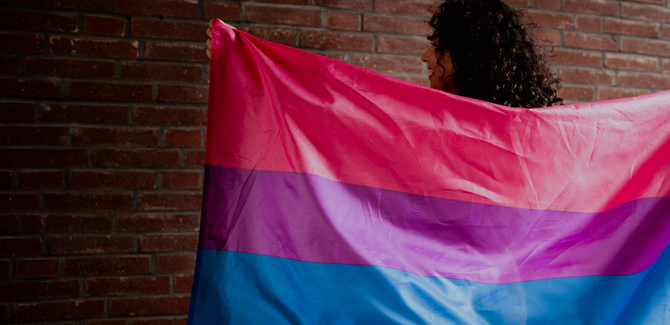

Don’t police what queerness is supposed to look like
Don’t tell people that they should be acting or dressing in a specific way to seem or be more queer. There is no one RIGHT way to be queer, and no one has to change their behaviors or dress a different way to be a part of the LGGBTQIA+ community, especially bisexual people. They shouldn’t have to scream queer from the outside to be accepted and welcomed into the community.
Don’t reject people based on who they have or haven't previously dated
If you feel an attraction to someone and learn that they are bisexual and realize they have had a mix of past partners, don’t reject them. Relationships with other genders do not make someone less than or “tainted.” No one should be punished, condemned, or mistreated based on who they have sex with or love. That is one of the significant messages of Pride. So you shouldn’t react negatively based on prior relationships with bisexual people. If you do, you are doing the complete opposite of Pride.
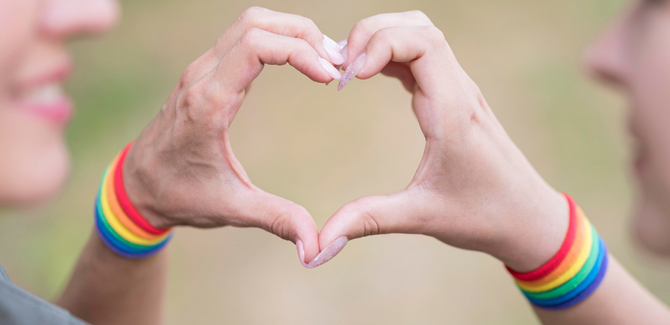
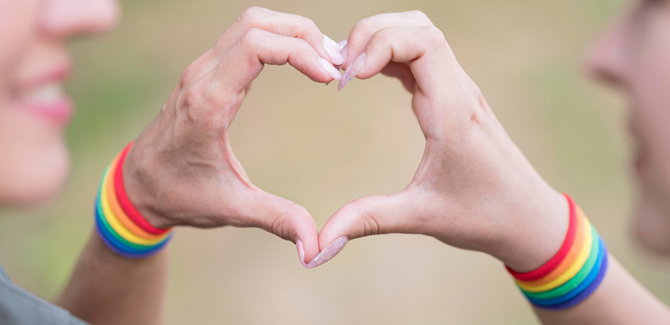
Invite bisexual people to LGBTQIA+ events and spaces
If you have bisexual friends and family, invite them to LGBTQIA+ events and spaces. It is so easy to feel like you don’t belong in spaces as a bisexual person, so extending the invitation lets them know that you view their sexual orientation and identity as valid and welcome them into the community. Just getting an invitation from a fellow LGBTQIA+ community member could make a difference for a bisexual person to let them know that it is their community.
Don’t perpetuate harmful bisexual stereotypes or negative beliefs
Sayings like “bisexuality is a pitstop to being fully gay,” “bisexuals are just greedy,” “bisexual folks are just promiscuous,” and “bisexual people can’t make up their mind” are all negative beliefs that can lead to internalized biphobia.
If you have previously said any of these phrases, stop saying them. Don’t perpetuate negative ideas that keep biphobia alive in the community and further instill it in bisexual individuals—validate everyone’s experiences and expressions. Perpetuating these harmful, negative stereotypes and beliefs is just another form of policing people to conform to one’s own beliefs, and it is brutal and hostile.
Now that you understand what biphobia is and what it can actively look like, you can work to fight it and stand up for bisexuals within the LGBTQIA+ community and all other non-monosexual identities.
Go out and fight for the B in LGBTQIA+ because it isn’t silent and deserves to be celebrated and welcomed as much as any other identity within the community.
For more tips, visit us on social media.

